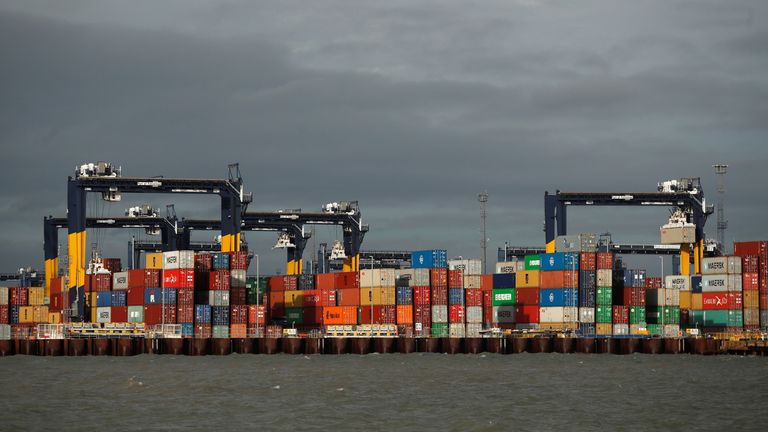Shortages

The construction sector has been suffering dramatically since May from the crippling supply chain problems that have occurred globally. Demand for basic everyday products such as timber, cement, steel and bricks has increased dramatically and the ability to source such supplies has become impossible for many. 72% of manufacturers reported higher costs for the goods, as numerous countries scramble to overcome the crisis and gain access as soon as they possibly can.
The sector is also suffering from staffing shortages which are causing a rise in wage costs, with firms reporting a 58% increase in labour costs. As the demand increases the need for more skilled workers rises. A survey revealed that the construction sector had one of the highest expectations when it came to salary. Among many reasons, Brexit has put pressure on the situation, as the nation left the European union meaning the pool of skilled workers became smaller. Construction managers who had to lay off staff during the pandemic are now struggling to fill those vacant roles. Around 43,000 jobs were unfilled in the sector in the three months to the end of September, reported by the Office for National Statistics (ONS), this is the highest since 2001. Some firms have had to go as far as to have to close due to the severe shortages. The confederation of British Industry (CBI) has stated that the sector has a huge shortage of scaffolders, carpenters, welders, plumbers, joiners and electrical engineers, the worry is this issue may continue for many years as training people in those fields takes time. The push for government investment into training a wider range of people and revamping the roles in question is more important than ever.
The recent fuel shortage sent Britain into chaos with a number of petrol stations running out and having to close due to the sheer levels of demand. Many areas of the country have seen an influx of panic buyers topping up their tanks to maximum levels. This sent panic through the construction industry as many contractors require vans to carry out their everyday tasks and without petrol they would be out of work. Another concern was that the basic materials may be delayed even further causing even more delays across the industry. However, as fuel stations began setting £30 limits to control the situation, this resolved the issue, and we are now seeing the situation improve.
Reason for the shortages
There are several factors that are causing these problems, from Brexit to Coronavirus to the HGV driver shortage. The accumulation of the obstacles has led to a number of industries suffering and struggling to get back to where they were pre-pandemic.

Shipping prices have increased globally and the shortage of containers continues to cause problems for countless firms. The lack of regulation when exporting empty containers has led to longer delays and when the cargo does arrive, the lack of HGV drivers to unload meaning this has created a further build-up at the port.
Many European lorry drivers went home due to the tight restrictions put in place because of the COVID-19 and very few have returned. It was predicted that even pre-pandemic the levels of HGV drivers had dipped to as much as 60,000 but it is now forecasted that there is a shortage of 100,000. Another issue when it comes to the HGV driving role is that it appears to be less attractive to younger workers due to the longer hours, low rate of pay and unsocial shift patterns. Therefore there is an emphasis on improving the role. Working in the UK has also become less appealing due to Brexit as the value of the pound decreases in comparison to the euro, meaning many EU nationals will choose to find work elsewhere. Subsequently, the construction industry is struggling to recover as quickly as originally forecasted from the pandemic.
Recovery Plans

The government has been called on to regulate the exportation of empty containers to ease the congestion building at the ports. With some countries willing to pay a premium for such containers it is clear the demand is at a significant high.
50,000 more HGV driving tests will be available each year by making the application process and tests shorter by removing a number of elements. Drivers will be able to get a licence to drive an articulated vehicle without first getting one for a smaller vehicle, making around 20,000 more HGV driving tests available every year. However, Richard Burnett of the Road Haulage Association said the industry was losing 600 drivers a week and it would take nearly two years to fill the net shortfall. But to try to overcome these difficulties in a timely manner the government is introducing temporary visas for 5,000 fuel tankers and food lorry drivers to work in the UK on the approach to Christmas. Around 200 military personnel are now driving tankers to combat the problem across the UK, as it continues to be an issue across Europe.
The end of the furlough scheme has left almost one million workers in limbo as the uncertainty of whether they will return to work looms over them. The expectation is that many businesses may be forced to lay off staff as they no longer have the support needed. However, this rise in unemployment could help the staffing shortages many other industries are currently facing.
With Christmas being around the corner the government is forced now more than ever to find solutions to overcome this catastrophic crisis as soon as they possibly can! The problems are global in nature meaning they require the cooperation of a number of countries to work together to recover successfully.
Omnia Machinery, all of our heavy plant machinery is inspected before being prepared for shipment enabling you to buy in confidence. Should you have any used machinery requirements for your upcoming projects, please do not hesitate to contact us! Alternatively, you can browse our extensive selection of quality used plant machinery here.
